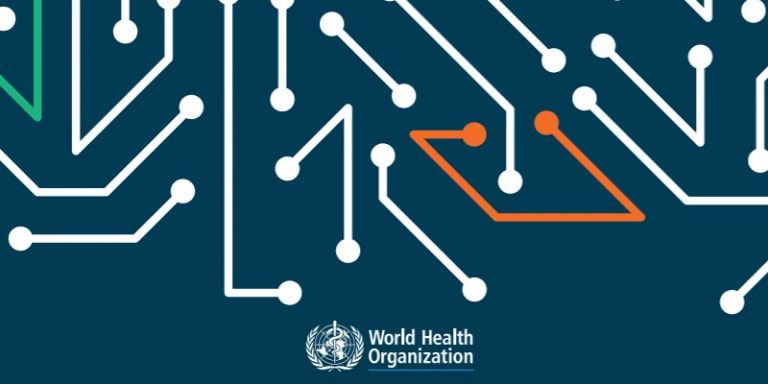
On 29 June 2021, the World Health Organization (WHO) published its report on the governance and ethics of artificial intelligence applied to health. Its release is the result of two years of consultations by a group of international experts selected by WHO. The document follows the latest guidance announced by the organization, which sees AI as a hope for improving healthcare delivery and medicine worldwide.
Artificial intelligence: great hope for improving healthcare and medicine for WHO
In his remarks, Dr. Tedros Adhanom Ghebreyesus, director-general of the WHO, made it clear how valuable artificial intelligence is in the world of science:
“Like any new technology, artificial intelligence has immense potential to improve the health of millions of people around the world, but as with any technology, it can also be misused and can lead to detrimental effects. This critically important new report provides a valuable guide for countries to maximize the benefits of AI, while minimizing its risks and avoiding its pitfalls.”
The report offers several recommendations, findings and warnings around AI applied to health and medicine. The WHO says AI can be used to improve the speed and accuracy of disease diagnosis and detection, enhance research in this area, accelerate the development of new medicines, facilitate clinical care or support various public health interventions.
The paper also states that the benefits of AI in health should not be overstated, especially if it displaces core investments and strategies needed to achieve universal health coverage. Another challenge of AI integration for the WHO is that of ethics: responsible collection and use of health data, cybersecurity, the environment, the correct choice of biases introduced in the algorithms and the assessment of risks to patient safety are very important points to raise.
It should be noted that the WHO takes into account diversity and the socio-economic context in its proposed dossier. It states that proposed models that collect data and operate in high-income countries may not be as effective for populations in middle- and low-income countries. The importance of digital skills training for health workers was highlighted.
Six guiding principles around the increasing use of AI in health
As part of the publication of this article, WHO recommends six principles on which regulation and governance could be based:
- Protect human autonomy: in the context of health care, individuals must retain control of health care systems and medical decisions, privacy and confidentiality must be protected, and patients must provide valid informed consent through appropriate legal frameworks for data protection.
- Promote human welfare, safety and the public interest: developers of AI technologies must meet regulatory requirements for safety, accuracy and effectiveness for well-defined uses or indications. Measures for quality control in practice and quality improvement in the use of AI must be available.
- Ensuring transparency, clarity and understandability: transparency requires that sufficient information is published or documented prior to the design or deployment of an AI technology. This information must be readily available and allow for constructive public consultation and debate on the design of the technology and on the use to which it should or should not be put.
- Encourage responsibility and accountability: while AI technologies can perform specific tasks, it is the responsibility of stakeholders to ensure that they are used under appropriate conditions and by properly trained individuals. Effective mechanisms must be put in place to allow individuals and groups harmed by algorithm-based decisions to challenge those decisions and seek redress.
- Ensure inclusion and equity: inclusion requires that AI applied to health be designed to encourage the widest possible equitable use and access, regardless of age, sex, gender, income, race, ethnicity, sexual orientation, ability or other characteristics protected by human rights codes.
- Promote responsive and sustainable AI: Designers, developers and users should continuously and transparently evaluate real-world applications of AI to ensure that the technology adequately and appropriately meets expectations and needs. AI systems should also be designed to minimize their environmental impact and increase their energy efficiency. Governments and businesses should anticipate the disruption to the workplace, including the training of healthcare workers to use AI systems, and the job losses that the use of automated systems may cause.
Translated from L’OMS publie son rapport mondial sur l’intelligence artificielle appliquée au domaine de la santé









